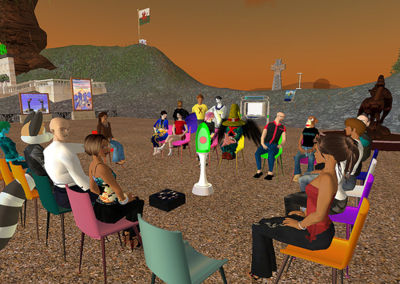Tertiary teaching in New Zealand/Academic skills/What makes a great learner?/The four Cs
| Tertiary teaching in New Zealand | |
|---|---|
| Unit 3: Academic skills | |
| What makes a great learner? | Objectives | Participation | Taking charge of your own learning | The four Cs | Summary |
The four Cs
What are the four Cs? Click here for an excellent summary of these important factors in adult learning.
Critical thinking requires analysis and interpretation. Is critical thinking the same as criticism? When we ask students to critique a colleague's work they often feel that they are being asked to criticise, which might be construed as impolite. Of course, the best place to start with critique is by critiquing your own practice. Judgements that are informed by experience and analysis can be very valuable.
Creative thinking may include synthesis of "old" information in new ways. Often learners need to give themselves permission to be a little free of traditional views of education. Perhaps your learning might be remembered by making a game of it, or by using different media that are appropriate to different learning styles. The teacher will need to set up learning activities that support creativity.
Collaboration with other learners has always been valuable, but the modern digital world enables collaboration to occur much more easily. It also requires respect for others' contributions and their culture, and facilitation of collaborative learning is also part of a teacher's role.
Communication needs to occur for any of the above to take place, and learners need to be familiar with all of the tools of communication available, both traditional and digital. In the conventional lecture situation, communication is generally unidirectional - and the learner may simply learn to sleep quietly!
